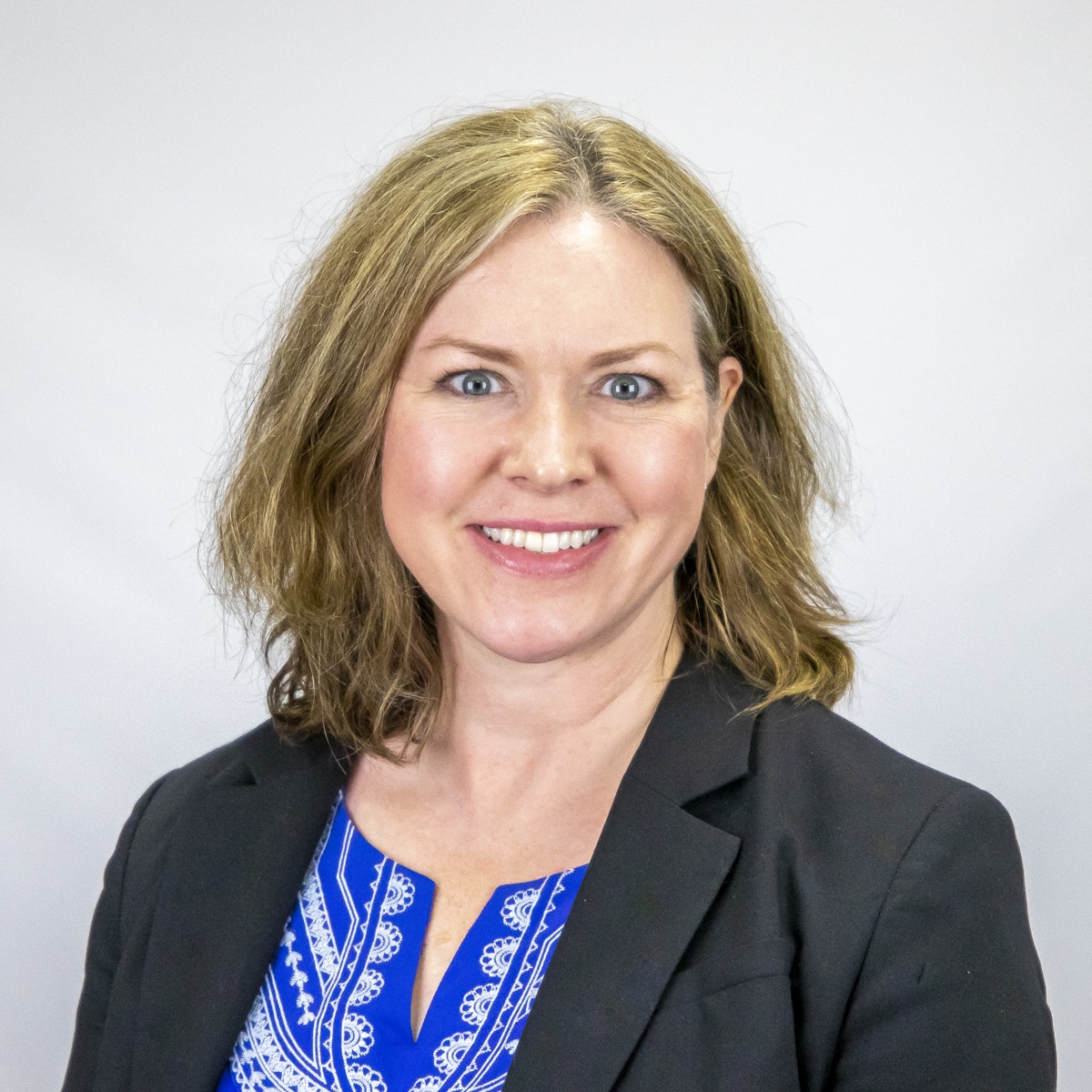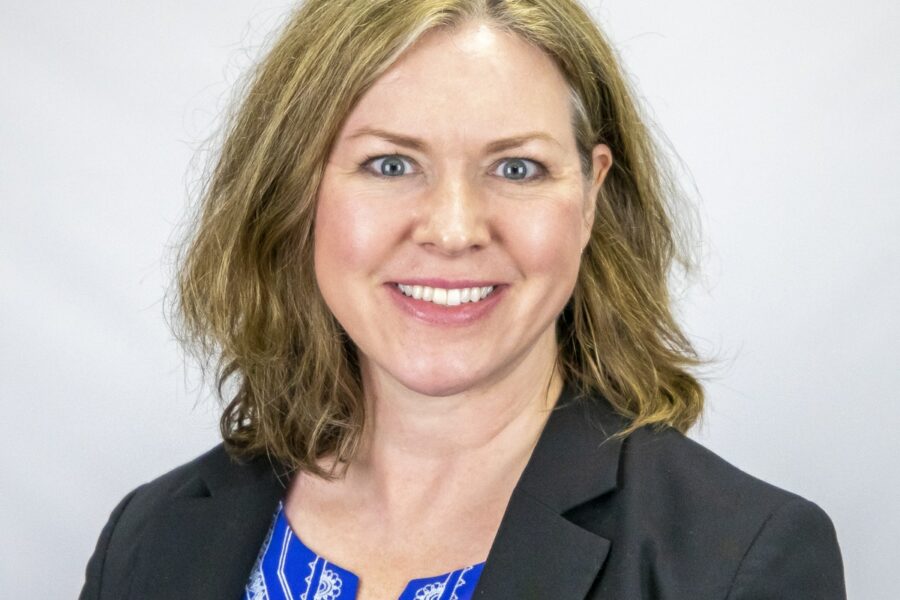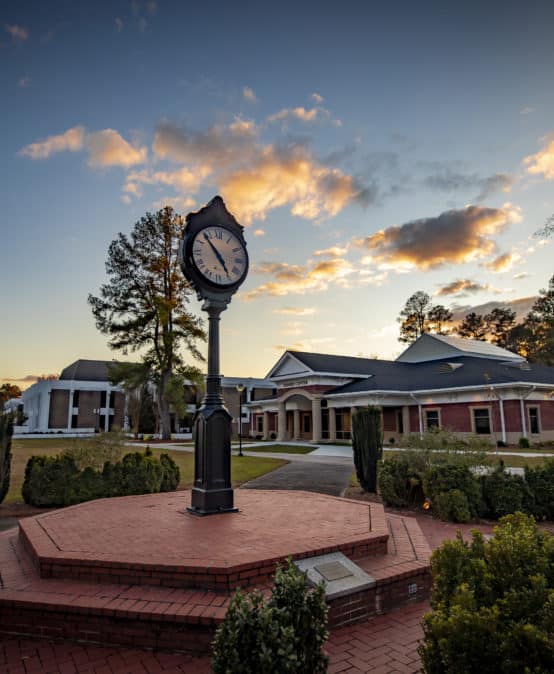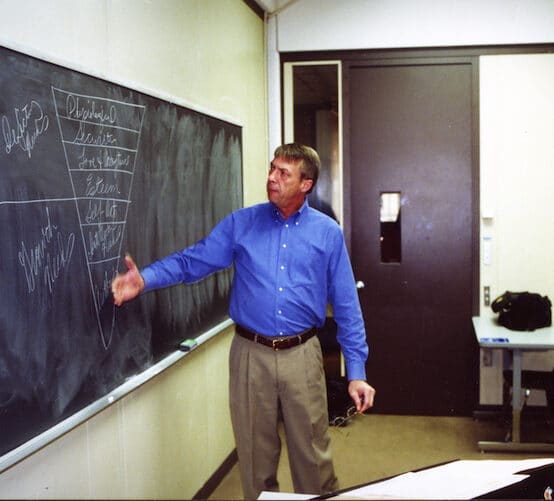November 3, 2023

A Bold, New Path
A Bold, New Path
By Tucker Mitchell | November 2023 | FMU Focus Magazine Fall 2023

Doctorate of Psychology program will open new doors for FMU, its students, and the community
The sense of excitement about Francis Marion University’s Doctor of Psychology program next year is all about all the doors that will open.
The new program is FMU’s third doctoral program and it will create new paths — open new doors — for FMU’s students, for the university, and perhaps most importantly, for the local community where mental health needs are at a crisis level.
“It’s such an exciting time because of all this program can bring,” says Dr. Crystal Hill-Chapman, Chair of FMU’s Department of Psychology. “It will make the university and our program much stronger, but more than that, I think it will improve care in an area that has long been overlooked and underserved. I think we can do some good. I know we can.”
Hill-Chapman, a Florence County native and an FMU graduate, says interest in the new program is high. Calls and emails seeking information come in almost every day. That’s not surprising given that student and alumni interest helped create the program.
Hill-Chapman says students have been asking about a doctoral program for over a decade. It’s a critical part of a career path in psychology because all states now require a doctoral degree for practice as a licensed psychologist.
Meeting a Demand
FMU’s Psychology program has a long-standing reputation for excellence in the region and state, with the Specialist in School Psychology program ranking fourth in the nation according to CounselingPsychology.org. Still, many of its top students had to go elsewhere for their capstone professional degree for years. Hill- Chapman is among those. After a stellar undergraduate career at FMU, she went to Texas A&M University – College Station for her Doctor of Philosophy.
“There was demand (for FMU’s new doctorate) because students want to stay here and because we want them to stay in the Pee Dee,” says Hill-Chapman. “Add to that the obvious need in the community. It just makes sense.”
FMU President Dr. Fred Carter and FMU’s Board of Trustees made it possible when they pushed state authorities to allow the creation of doctoral programs at FMU. After that campaign was successful, a doctorate in psychology, or “PsyD” as it is called, was natural.
“This program fills an obvious need, and it continues the strong tradition of excellence in the Department of Psychology at FMU,” says Carter. “We’re looking for great things in the years ahead as our first cohorts of PsyD students begin to matriculate.”
FMU’s new PsyD aims for accreditation by the American Psychological Association Commission on Accreditation (APA-CoA). The PsyD will emphasize a practitioner-scholar model that will focus on clinical skills training, meaning that outside of classes, students will focus on experiential practice under the supervision of licensed psychologists. That is in contrast to some doctoral psychology programs (Doctor of Philosophy, PhD) based on a scientist-practitioner model that focuses on research skills and scientific methods.
FMU’s program is also inter-professional in that its curriculum leads students across several allied fields. There are courses in health, education, and psychology. Finally, as befits the serious community health problems the program’s graduates will be expected to confront in their practices, it is a rigorous program. A graduate must complete 130 academic hours of courses, 600 actual hours of practica experience, and a 2,000-hour internship. The typical program course will last four years for the candidate enrolling after completing an undergraduate degree.
Most courses will be offered in the late afternoon/early evening to accommodate working students. Practice and internships generally will take place during regular daytime business hours.
Students coming from any of FMU’s three masters-level programs and psychology, as well as students from other master’s programs accredited by the Council of Applied Master’s Programs
in Psychology (CAMPP), or the National Association of School Psychologists (NASP), will receive 45 academic hours of course credit towards their doctorate.
FMU will keep its current master’s programs in place. Although the trend in the field favors doctoral programs, a need for master’s level graduates remains.
Students entering the program with undergraduate degrees outside of psychology must complete prerequisites before admission.
The program will open in the fall of 2024 with eight students.
Hill-Chapman says it will eventually grow to 14 students in the class, about two for every faculty member. The number is significant because each doctoral student is assigned a faculty advisor who acts as their mentor.
FMU’s program is unusual because it is a clinical/school program, a combination that gives graduates access to all the primary career paths for psychologists. Only nine schools in the nation with doctoral programs offer this combination. If students in FMU’s doctoral program complete their internships under the supervision of a Board Certified Behavioral Analyst, they’ll receive BCBA certification, further expanding their career horizons.
“The combination degree opens the doors to a range of career options,” says Hill-Chapman. “If you just have a school psychology degree, you are often limited to educational settings, maybe some pediatric work through a hospital. Working in educational settings is difficult if you are a licensed clinical psychologist. There’s a need across the board, but having options and flexibility is great.”
The dire need for mental health practitioners means graduates will be in high demand.
The Bureau of Labor Statistics classifies psychologists as a high-growth job in the next date, projecting an additional 12,000 new psychologists will be needed between now and 2032. That’s over and above the almost 200,000 psychologists now in practice.
As the nation is rethinking mental health, the national need is significant. The regional need is acute.
The South Carolina Institute of Medicine and Public Health shows that mental and behavioral health diagnoses are climbing in a state currently ranking last in psychologists per capita. A 2018 report on psychological workforce projections for the southeastern United States showed that 1,740 new doctoral-level psychologists will be needed in the region by 2030. Of that number, 1,170 will be required in South Carolina.
Hill-Chapman says the numbers in the Pee Dee Region are, if anything, worse. Most counties around Florence have just one licensed psychologist. Florence, by far the most populous county in the Pee Dee, has 12, but that includes several practitioners like Hill-Chapman who are also university professors, and hence, less available (Hill-Chapman is a licensed and board-certified psychologist, a rarity among academics in the field, but her academic duties curtail her practice time).
Florence is a hub for mental health treatment in Pee Dee, just as it is for other healthcare. Even though more psychologists are based in Florence, most are busy with patients who drive in from afar for treatment.
Clinics to the Rescue
Another aspect of the mental health crisis in the state and region is the lack of affordability. Insurance does not pay for all types of coverage, and in South Carolina, it typically does not pay for enough treatment to bring about long lasting outcomes.
Hill-Chapman says an expanded clinic at FMU could help.
FMU graduate students, supervised by the Department of Psychology faculty or the Clinic Director, currently see a small number of pediatric patients in offices at the Leatherman Medical
Complex and The Carter Center for Health Sciences. The size and scope of the clinic should grow with the advent of the doctoral program. That will bring additional students, all of whom must spend the equivalent of a year-and-a-half of full-time work in clinical settings, into play. Hill-Chapman says numerous grants are available for schools with doctoral programs in psychology, including many grants aimed at supporting clinics.
FMU doctoral students must complete their clinical practica and internships at practices or in institutional programs accredited by the Association of Psychology Postdoctoral and Internship Centers (APPIC). Currently, most students would have to leave the Florence area to complete those parts of the studies because there are no APPIC-accredited practices in the area. Hill-Chapman is working for change. Her favored plan is to gain this accreditation for an expanded FMU clinic.
That would allow students to complete their internships in Florence, which would be convenient and would likely increase the number of graduates who stay in the area to practice.
Any future FMU clinic will likely feature a combination of FMU’s burgeoning array of graduate healthcare specialties. Clients could see faculty practitioners and their students for speech-language pathology, occupational therapy, and psychology. Other disciplines in the program planning stages, like physical therapy, could be added to the mix.
An expanded clinic would require a full-time clinic manager. Patients would likely be seen “at cost,” which would help clients struggling to afford services.








